New program in Southern Nevada extends health-care lifeline to newly released inmates

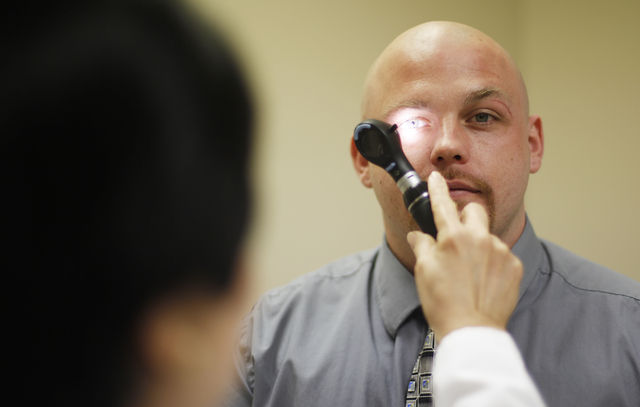
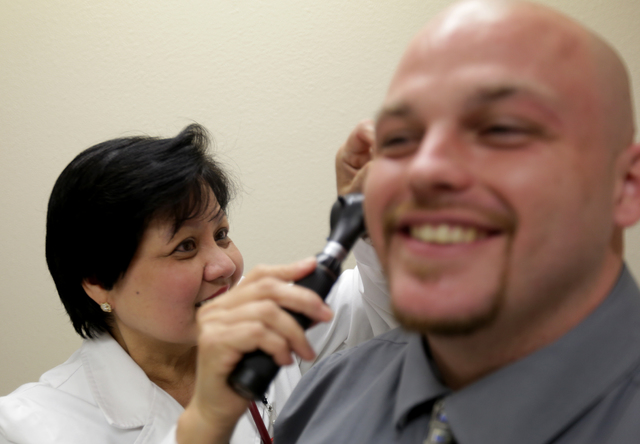
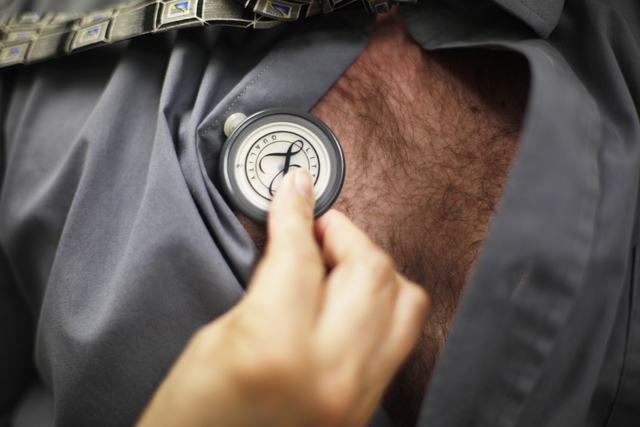


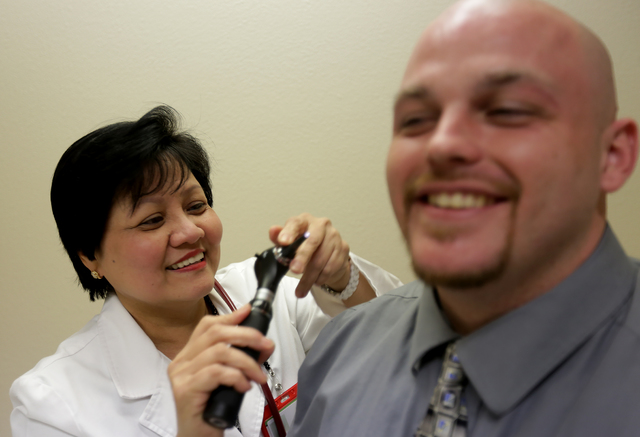


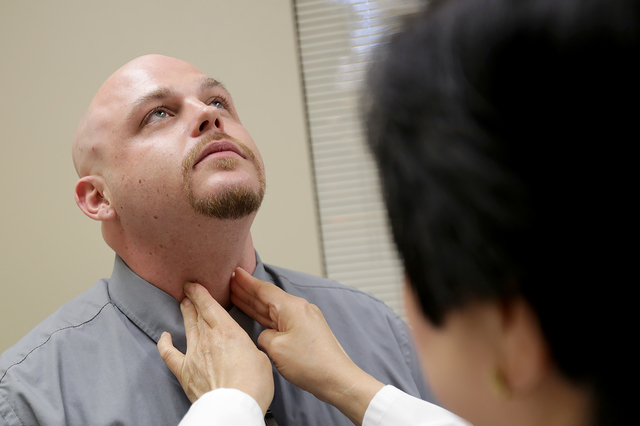
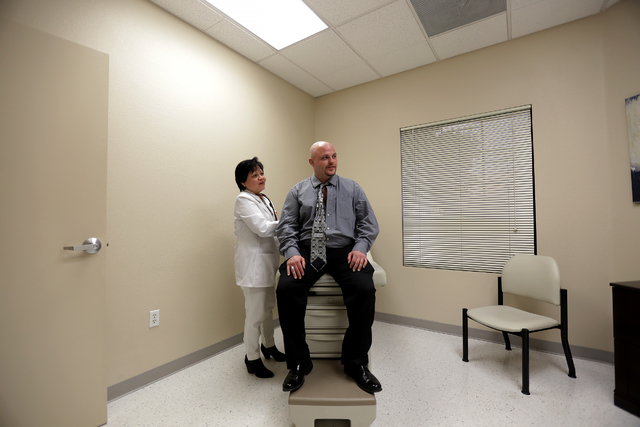
Newly released inmates face many pressures that can lead them to return to jail or prison, but a new program in Southern Nevada aims to remove access to health care from that list.
Robert Giroux, 33, who was released this fall from the Clark County Detention Center after serving an eight-month sentence for domestic battery, said the program launched last month by the FirstMed Health and Wellness Center and the nonprofit Hope for Prisoners removed a big weight from his mind.
Giroux, who said he had no possessions and no prospects for work when he got out, first received help from Hope for Prisoners through their rehabilitation program, which helped him register for college courses in facility maintenance and recover his driver’s license. Now with his health care covered through the new program, he can focus on finishing his schoolwork and finding a job.
“With all of the stresses and pressures on me to reintegrate into society, it takes that level of stress down just knowing that I have people in place who are going to guide me through the process,” he said.
HOW IT WORKS
The program works like this:
Inmates preparing for freedom and newly released offenders participating in the Hope for Prisoners program can meet with a FirstMed representative at the nonprofit’s offices.
That person can then help them connect with FirstMed services – including setting up doctor appointments and filling prescriptions — and sign them up for Medicaid coverage and more.
“Some of them may not know where they are healthwise so to get that addressed right up front is a huge win for them,” said Jon Ponder, CEO of Hope for Prisoners, which provides a broad range of re-entry and re-integration services for individuals exiting the judicial system.
FirstMed CEO Angela Quinn said she believes the program will help former inmates overcome the hurdles that come with a criminal record.
“To me it’s very exciting to know there’s a barrier and that we’re going to go over it, go around it or push it down,” she said.
The program reflects a growing national trend of providing former inmates with better access to social services like health care to ease the burdens associated with re-entry to society and improve their odds of becoming productive members of society.
It also aligns well with efforts underway at the state level under new prisons boss James Dzurendato to focus on inmate rehabilitation as a means of enhancing public safety.
A June 2016 report from the Nevada Department of Corrections found the percentage of state inmates released and re-admitted to state facilities within 36 months increased from 23.12 percent in 1998 to 30.24 percent in 2012. And those figures don’t include inmates who died or moved out of state during the period or re-offenders at the city or county level.
Programs connecting former inmates with health resources play an important role during a significant transition point in their lives, said Dr. Josiah Rich, a Brown University professor of medicine and co-founder of The Center for Prisoner Health and Human Rights at Miriam Hospital in Rhode Island.
‘EXACTLY WHAT WE NEED’
The professor, who has spent years working with inmates with HIV, said that when individuals who’d never received consistent health care before imprisonment are directed to an organization like FirstMed upon their release, they are more likely to visit a doctor and control any medical needs. That ultimately benefits taxpayers, preventing their small health issues from growing into more-serious ones that lead to emergency room visits and generate costly bills they likely can’t pay.
“That kind of partnership,” he said of FirstMed’s relationship with Hope for Prisoners, “is exactly what we need to solve this problem.”
To 27-year-old Las Vegas Valley resident Steven Hemmann, health insurance and access to doctors were just two of the many challenges he faced after being released this fall from a “much needed but unwanted vacation” in jail after being convicted of domestic violence.
Hemmann said his 2-year-old son and 10-month-old daughter were placed in foster care during his absence, and without a job or money he had little hope of regaining custody.
“All I had was a Nevada ID … and the clothes on my back,” he said.
With the help of Hope for Prisoners, he has since signed up for welfare and established a checking account — small steps toward his larger goal of regaining custody of his kids and staying out of jail after a lifetime of run-ins with the law.
Affordable health care for his family is another stepping stone, establishing a safety net for him and his children as he searches for work, he said.
“Just like they need their papa, they need a doctor,” he said.
Ponder said addressing the health care needs of current and former inmates is important, but it’s just one part of the holistic approach his organization takes to rehabilitation, which includes helping them find jobs and deal with their children’s needs, housing problems and other issues.
“We want to make sure that there are supportive services there in order to help them be successful,” he said.
Contact Pashtana Usufzy at pusufzy@reviewjournal.com or 702-380-4563. Follow @pashtana_u on Twitter.
RELATED
Nevada receives $978k grant to reduce recidivism












